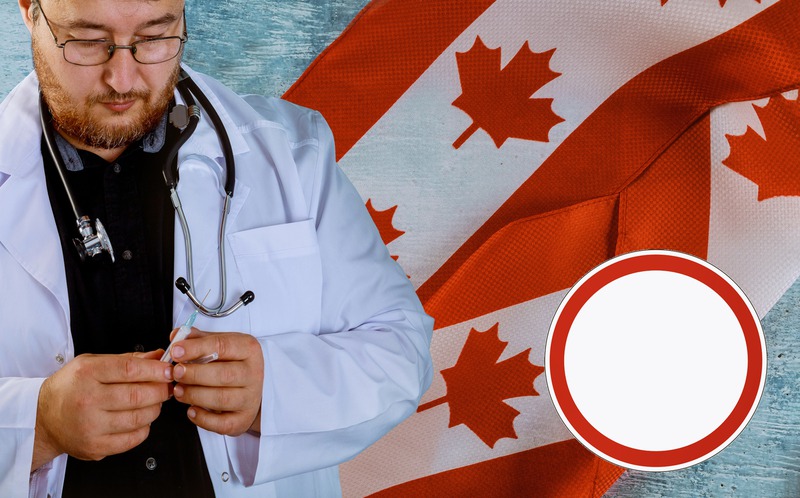What to Expect During Your Immigration Medical Exam

The immigration medical exam is a vital step when applying for residency or a visa in many countries. It’s a requirement to ensure that you’re in good health and free from diseases that might pose a public health risk. Most people find the process daunting because they’re unsure of what to expect. In this article, we’ll explore what typically happens during an immigration medical exam, so you can feel more at ease about this part of your immigration journey.
Immigration Medical Exam Steps
During the immigration medical exam, you can expect a series of evaluations to assess your health. Here’s a breakdown of the usual components involved:
-
Review of your medical history
-
Physical examination
-
Vaccination records check
-
Chest X-ray for tuberculosis screening
-
Blood tests for various conditions
Medical History Review
Expect your medical history to be part of the exam. You’ll be asked about past and current medical conditions, surgeries, and treatments. Be honest and provide complete information, as it’s crucial for an accurate assessment. This part of the exam helps identify potential health issues that might need further investigation.
Physical Examination
The physical exam covers basics like your height, weight, blood pressure, and heart rate. Additionally, the doctor will examine your eyes, ears, nose, and throat. They’ll also check your limbs and abdomen for any signs of abnormalities. This exam ensures that there are no visible health concerns that might require treatment or affect your immigration status.
Vaccination Records Check
Bringing your vaccination records to the exam is important. The doctor will review your immunization history and may administer any missing vaccinations to ensure you’re protected against diseases. Common vaccinations include those for measles, mumps, rubella, and tetanus. It’s a good idea to get updated on your vaccines before the exam if possible.
Tuberculosis Screening and Other Tests
A chest X-ray and blood tests are standard parts of the exam. The X-ray checks for tuberculosis, while blood tests screen for conditions like syphilis and HIV. If immigrants are found with communicable diseases, they may need additional tests or treatments. These steps aim to protect public health by identifying and controlling such diseases early.
Choosing the Right Doctor
You’ll need to choose a designated panel physician who can perform your immigration medical exam. This is because panel physicians are doctors approved by the immigration authorities to conduct these evaluations. To ensure a smooth process, make sure to select a reputable doctor. By checking for qualified panel physicians in Ottawa ON, you can be confident that you’re in capable hands while being assessed.
What to Bring to Your Exam
The necessary documents can streamline the process and reduce any potential delays. Here’s what you’ll typically need to bring:
-
A passport or another form of identification
-
A form stating the need for the exam
-
Complete medical history documents
-
Existing vaccination records
-
Eye prescription, if you wear glasses
After the Medical Exam
Once the medical exam is done, the results are sealed and submitted directly to the immigration authorities. It’s important to note that not all results are shared with you initially. If the doctor identifies issues that require attention or deferment, they’ll discuss these with you. Understanding that the results are sent securely ensures the integrity of the process and helps you focus on other parts of your immigration journey.
Educational resources are available to help immigrants better understand the Canadian immigration medical examination process, among others. Immigration firms offer guidance on requirements and timelines, allowing applicants to prepare adequately for each step. Such assistance can significantly ease the stress of navigating this complex process and ensure applicants are well-prepared for their medical evaluations.
Preparation Tips for Your Exam
Being prepared can improve your experience and reduce anxiety. Consider these tips:
-
Double-check your documents
-
Schedule your appointment in advance and confirm
-
Rest well the night before
-
Stay hydrated and eat a healthy meal
-
Wear comfortable clothing
Common Concerns and Misconceptions
Many applicants worry about failing the medical exam. It’s important to note that failing the exam is rare. Conditions that would result in a fail are typically highly contagious or pose significant public health risks. In most cases, treatable conditions or missing vaccinations can be addressed without affecting your immigration status.
Another common concern is the cost of the exam. This varies depending on the location and the doctor’s fees. It’s essential to budget for this cost and consider it part of the immigration process. Clarifying costs before booking your appointment can prevent unexpected expenses and help with financial planning.
Resources for Further Support
If you’re still feeling uneasy about the process, numerous support channels can offer assistance:
-
Immigration consultants
-
Online forums with fellow applicants
-
Official immigration websites and guides
Connecting with others who have undergone this experience can provide insights and reassurance. These resources are often invaluable for answering specific questions and addressing concerns you may have. For instance, finding information on the medical exam for immigration Ottawa requirements can help streamline and demystify the process. Engaging with these platforms helps build a support network and alleviates unnecessary worry about the exam.
Final Thoughts
The immigration medical exam is a key part of ensuring both your health and public safety. Understanding what to expect can help reduce anxiety and prepare you for the process. From choosing the right doctor to gathering necessary documents, being organized is key. Remember, the goal of the exam is not to exclude applicants but to ensure public health safety. With the right preparation and support, you can successfully navigate this step in your immigration journey. Don’t hesitate to reach out for help if needed, and approach the exam with confidence and peace of mind.



